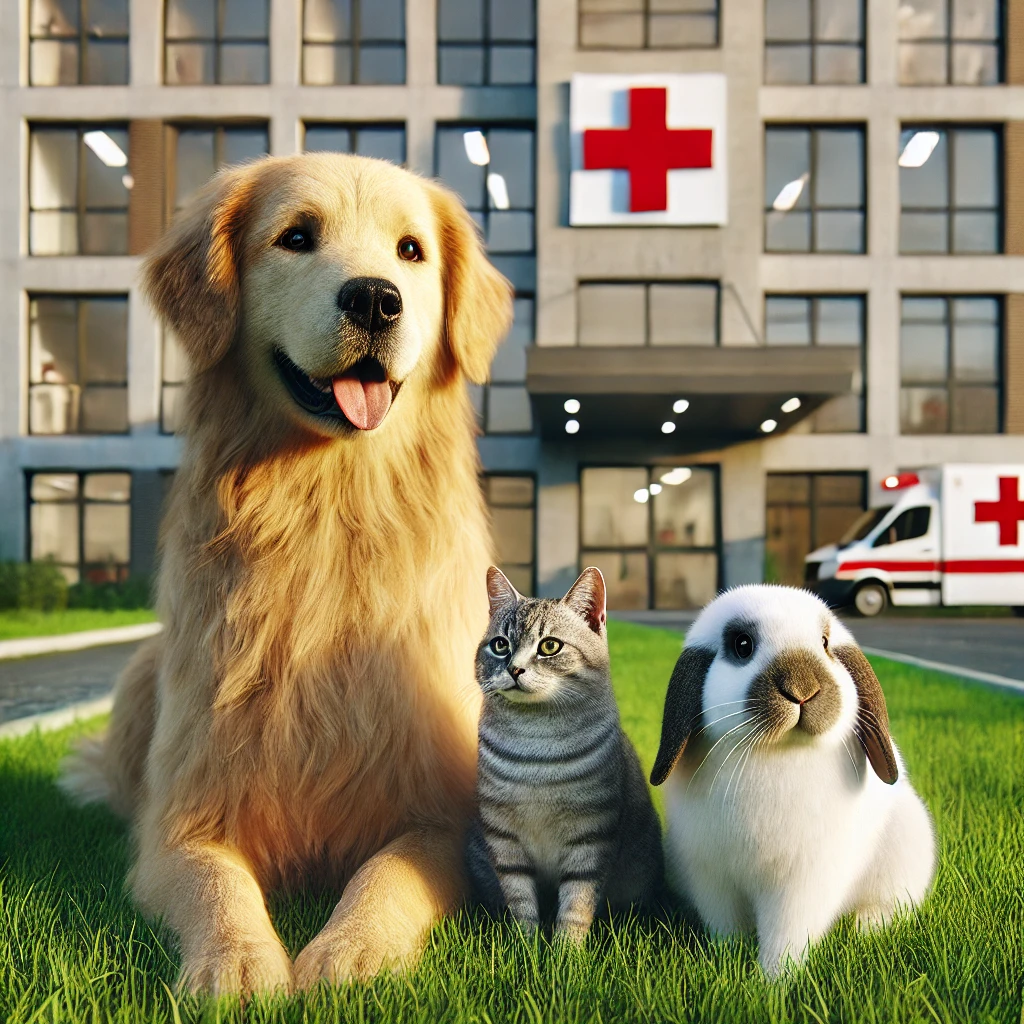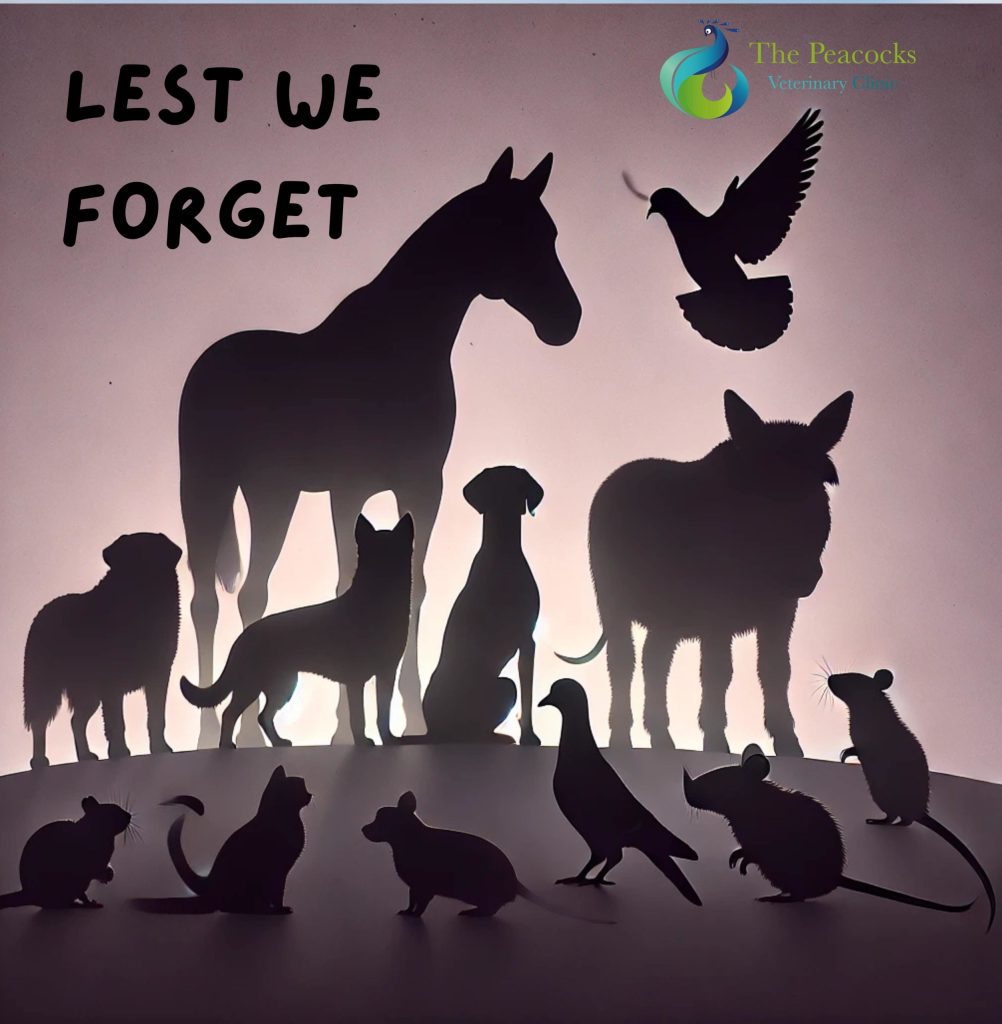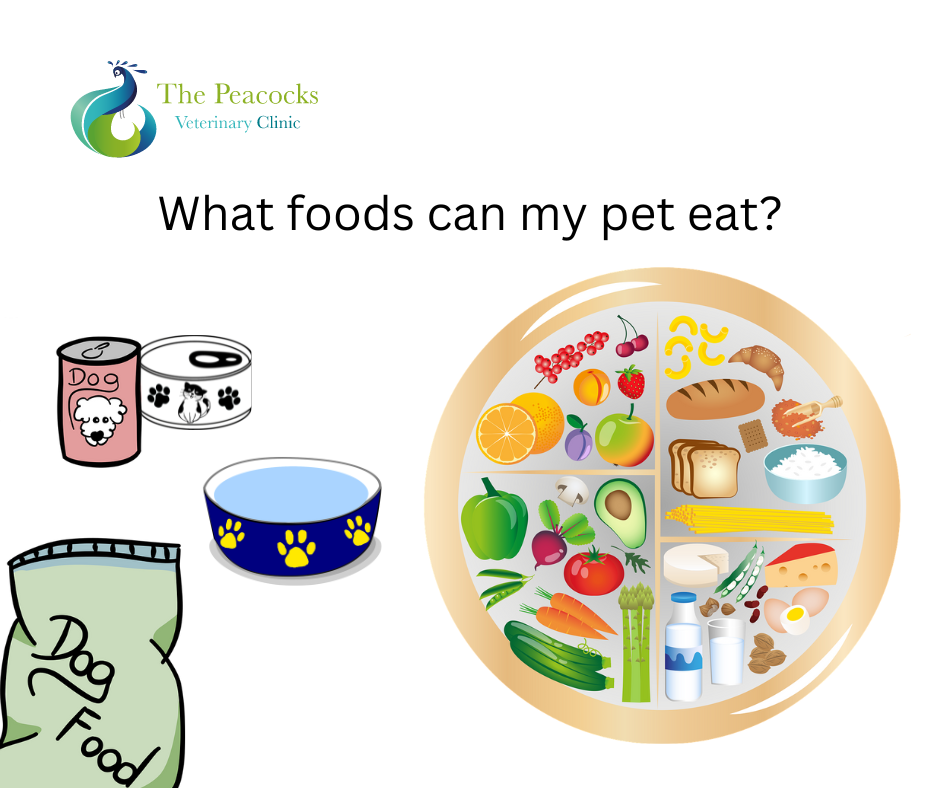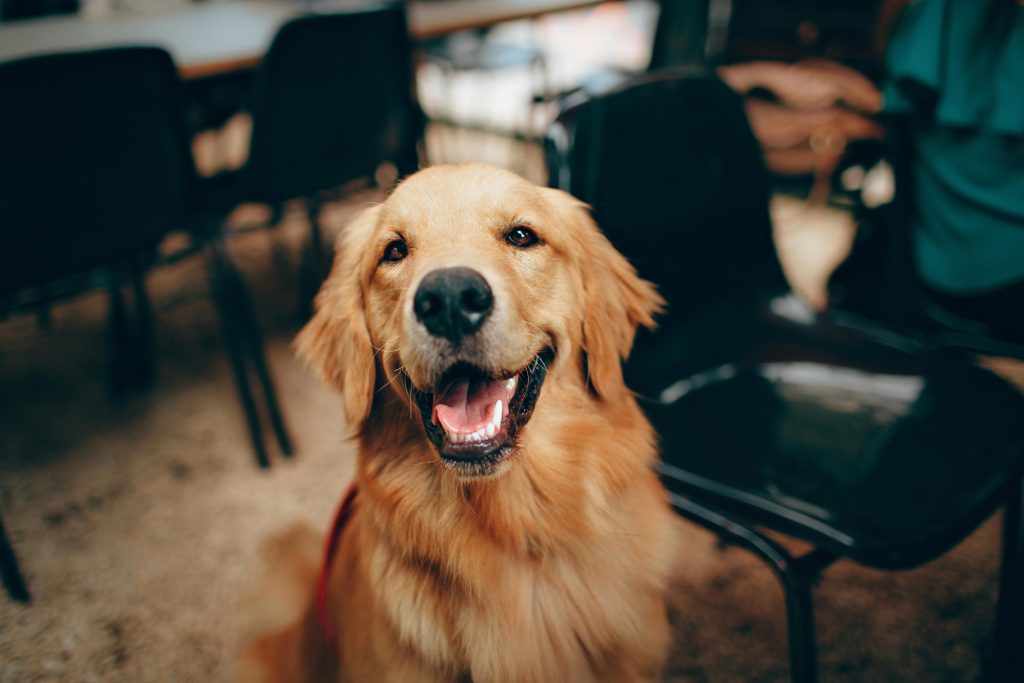What do I do if my pet needs veterinary help out of hours?

Our Difference Services Top Pet Club Our Team News Contact Register X Find us What do I do if my pet needs veterinary help out of hours? Independent Friendly Dedicated Clinical Excellence Cost-effective care It’s always distressing when your pet is showing signs of illness or is involved in an accident, but it can be extremely frightening when it happens overnight or at other times when the practice is closed. This is why Peacock Vets has partnered with Nightingale Vets in Chippenham and Vets Now in Bath. Both offer all our clients a dedicated out of hours service. This is far more than an ‘on-call’ service. Rather than having a vet who has worked hard all day and is called from their bed to assist, this service provides fully rested vets and vet nurses who are on site all night, every night. Nightingale Vets 19 Langley Road Chippenham SN15 1BS Opening hours: Monday to Friday 7pm to 8.30am Saturday 12.30pm until Monday 8.30am Vets Now Bath Rosemary Lodge Bath BA2 5RL Opening hours: Monday to Friday 7pm to 8 am Saturday midday to midnight Sunday 8am to Monday 8am From obtaining peace of mind via a phone call to full emergency care, you will know that your pets are in safe hands. All patients who need to access out of hours care are offered a free of charge follow up consultation at Peacock Vets. Further follow up appointments and care will then continue to be carried out by Peacock Vets. What do I do if my pet needs veterinary help out of hours? Call our out of hours emergency number: 01249 847457 Choose option 1 for Nightingales in Chippenham Choose option 2 for Vets Now in Bath Give the emergency vet as much detail as possible about your pet’s symptoms over the phone. They will then advise if they feel it is necessary for you to visit the surgery or give you helpful advice to treat or monitor your pet at home until you are able to bring them to see us. Can you administer First Aid to your pet? As with humans, there are some treatments that you can give your furry friends yourself before taking your pet to the vets. First Aid is not a replacement for full veterinary treatment, but can help to alleviate pain, stop bleeding and stabilise your pet before being seen by a vet. If your pet has stopped breathing, it is also possible to give CPR (cardio pulmonary resuscitation) to them. The Emergency Vets will talk you through what to do, plus the PDSA has a free Pet First Aid guide which you can download, and some helpful advice on its website: First Aid for pets – PDSA Don’t forget, Peacocks Vets is normally open from 8.30am to 7pm Monday to Friday and 8.30am to midday on Saturday. About Us Our dedicated team provide friendly, understandable advice alongside excellent clinical care. Corsham: 01249 847 457hellocorsham@peacockvets.co.ukUnit 2 Martingate Centre, Corsham, SN13 0HL Chippenham: 01249 847 186hellochippenham@peacockvets.co.uk23 Borough Parade, Chippenham, SN15 3WL Browse Connect Facebook-f Google-plus-g Instagram
How much does it cost to own a pet?

Our Difference Services Top Pet Club Our Team News Contact Register X Find us How much does it cost to own a pet? Independent Friendly Dedicated Clinical Excellence Cost-effective care Do you worry about how you will pay for treatment for your furry friend? There are many plus sides to owing a pet. It has been scientifically proven that owning a pet can provide physical and mental health benefits. Whatever furry friend you choose, they give you love, companionship, a reason to get up in the morning and to exercise as well as providing their owners with plenty to talk about with other pet owners, family and friends. One of the down sides to consider carefully when deciding to have a pet is how much the pet will cost you. We suggest splitting the costs into initial ones, regular ones, annual ones and one-off or unexpected costs. The list below is not exhaustive, but gives you an idea of things to consider: Initial costs: Cost of purchasing your pet Initial vaccinations Things to make your pet comfortable e.g. bedding/crates/cages/equipment Things to keep your pet safe and entertained e.g. leads, harnesses, toys Pet-proofing your home e.g. fencing, dog gates, puppy pads, litter trays Grooming tools e.g. brush, comb, nail clippers, shampoo Training costs, if needed Spaying/Neutering Microchipping and dog tags Regular costs: Food and treats Dental hygiene Parasite treatment e.g. flea, tick and worm Poo bags Dog walker/pet sitting/day care, if used Groomer, if used Insurance cover Annual costs: Vaccinations Vet check-ups Unexpected costs: Accidents Illnesses According to the RSPCA’s cost calculator (Pet Cost Calculator | RSPCA – RSPCA – rspca.org.uk), it can cost from £62 per month to care for a small dog, rising to over £100 per month for a large dog. Their calculations only take into account food, grooming, insurance, poo bags, routine health care and toys. For dogs requiring specialist food and who might be given more expensive toys, for example, they estimate the higher monthly costs of £205 per month to over £400 per month, depending on the size of dog. Within these costs, they calculate routine health care for flea, tick and worm treatments will range from £11-16 per month. This does not take into account annual vaccinations or any other additional vet treatments. For cats, the costs are lower, but still range from a basic £26-28 per month to over £206 per month for a large-breed cat such as a Maine Coon requiring specialist food and who has more toys. They estimate that routine care for cats (flea, tick and worm treatments) will be in the region of £9 per month, excluding vaccinations, microchipping, neutering etc. Peacock Vets – here to help Choosing to have a pet is a decision not to be taken lightly, but if you do decide to have a pet, we are here to help you every step of the way. We offer your first consultation with us free of charge where we can check your pet’s health, talk to you about any concerns that you may have about owning a pet and we can also introduce you to our Pet Behaviourist if needed. We also have ‘Puppy Parties’ to help young dogs get used to meeting other dogs. Many of our clients opt to utilise our Top Pet plans to help spread the cost of preventative care, check-ups and microchipping. In addition, many procedures, such as lump removal and dental treatment are offered to our Top to ail Pet Plan members at a reduced, fixed rate as well as discounts off of the cost of animal health certificates; neutering and repeat prescription medications. Talk to us today about how we can help you and to discuss the most cost-effective solutions to providing your pet with the best care, vaccinations and medication that they need. About Us Our dedicated team provide friendly, understandable advice alongside excellent clinical care. Corsham: 01249 847 457hellocorsham@peacockvets.co.ukUnit 2 Martingate Centre, Corsham, SN13 0HL Chippenham: 01249 847 186hellochippenham@peacockvets.co.uk23 Borough Parade, Chippenham, SN15 3WL Browse Connect Facebook-f Google-plus-g Instagram
We will remember them

Our Difference Services Top Pet Club Our Team News Contact Register X Find us We will remember them Independent Friendly Dedicated Clinical Excellence Cost-effective care At 11am on the 11th day of the 11th month every year, we remember all those brave men and women who lost their lives, but at Peacock Vets, we also remember those animals who made their final sacrifices, too. Animals have played a variety of roles in conflicts throughout time. A horse called Bucephalus was said to be a huge black stallion which belonged to Alexander the Great. Warrior, another horse, served with General Jack Seely on the Western Front during the Great War. Having been active in many battles, he returned to the Isle of Wight after the war and died at there at the age of 33. He was posthumously awarded an Honorary PDSA Dickin Medal (known as the animal version of the Victoria Cross) in 2014 (marking 100 years since the start of the Great War). He received the medal on behalf of all animals who served in World War One. According to the Imperial War Museum, over 1.6 million animals served in World War One. Horses and camel-mounted troops were used in desert campaigns and horses were used on the Western Front. The RSPCA have estimated that 484,143 British horses, mules, camels and bullocks died between 1914 and 1918 with many hundreds of dogs, carrier pigeons and other animals losing their lives, too. Animals formed a crucial part of the war effort. Larger animals such as horses, donkeys, mules and camels carried food, water, ammunition and medical supplies whilst dogs and pigeons carried messages. Dogs and cats were also trained to hunt rats in the trenches to help prevent the spread of disease. Similar to the work that canaries used to carry out in mines, they were used to detect poisonous gases. Horses wore gas masks during attacks and other animals were placed in special carriers to protect them from. Throughout history, animals have been kept by regiments as mascots. During the American Civil War, mascots such as eagles, bears, raccoons and squirrels were kept by troops. They were also used to provide comfort and raise morale amidst the difficulties of war, with many stories of soldiers keeping both wild and domesticated animals as companions. Michael Morpurgo’s book, War Horse, is a tender story of the close bond between horse and man during World War One which is based on true events. As well as those who were serving with the military, pets are also impacted by wars. During the second world war, the RSPCA rescued over 16,000 animals from bombed areas. Many had to be euthanised due to their injuries, but others were successfully treated and rehomed. By 1944, the RSPCA had established 734 animal rescue centres to care for the casualties, stray animals and other sick animals. During the war, they rescued and treated over 256,000 animal victims of enemy action. The Purple Poppy In 2006, the purple poppy was created by the charity Animal Aid as a way to commemorate animals which served during conflicts. There is a specific Purple Poppy Day held on August 23rd each year to remember animals who have served or died in war. This date was chosen as it coincided with the first time that horses were involved in the Great War at the Battle of Mons. The Peacock Vets doesn’t condone war and has no affiliation with the charities mentioned in this article, but we believe that all animals deserve to be recognised for their amazing support, care and dedication that they show to their owners. For those who gave their lives in war – we will remember them. About Us Our dedicated team provide friendly, understandable advice alongside excellent clinical care. Corsham: 01249 847 457hellocorsham@peacockvets.co.ukUnit 2 Martingate Centre, Corsham, SN13 0HL Chippenham: 01249 847 186hellochippenham@peacockvets.co.uk23 Borough Parade, Chippenham, SN15 3WL Browse Connect Facebook-f Google-plus-g Instagram
How to help your pet when fireworks go off

Our Difference Services Top Pet Club Our Team News Contact Register X Find us How to help your pet when fireworks go off Independent Friendly Dedicated Clinical Excellence Cost-effective care It’s not only during October and early November that you need to consider your pets’ reactions to fireworks. More and more people are celebrating with fireworks throughout the year – for parties, weddings and, of course, New Year’s Eve. Our furry friends can find fireworks scary, even the quiet ones. They can react in different ways, but you may notice that they: Hide away Shiver Freeze Run away For those that bolt or run, this can be dangerous to them and you if they pull so hard on their lead, for example, that you are pulled into traffic. If they are off lead at the time, they can disappear as they are likely to run and hide. What can I do to help my pet? Plan ahead if you can. Make sure that your pet has a safe place to go – a quiet spot in your home where they can feel in control. Allow them to make it their own – leave favourite toys and food treats there, with limited interaction from you. When fireworks go off, they can retreat to this safe space, so ensure that they have access to the space even if you are out. Relaxing music is not only for stressed humans. Classic FM broadcasts special programmes each year to help keep anxious pets calm and relaxed along with tips from the RSPCA. More details can be found here: Classic FM’s Pet Classics returns to help keep anxious pets calm and relaxed… – Classic FM Other simple ideas to help are: Exercise your dog during daylight hours Keep cats indoors overnight if they get spooked Create and use the safe haven regularly Try not to leave your pet alone in the house when you know fireworks will occur Use blackout blinds or curtains to prevent flashes being seen Close windows and curtains early to muffle as much noise as possible Play music or put the TV on to cover up the sound of fireworks Try not to react to the fireworks yourself – if your furry friend sees you are agitated, they will be too As well as the tips above, there are pheromone diffusers available which give out calming chemicals into a room or for severely anxious animals, it might be necessary to consider prescribing calming medication. You can also book an appointment with our vet and animal behaviourist, Karen, who will be happy to run through options specific to you and your pet as well. Our team are passionate about all animals and treat yours as if they were our own, so call in or contact us to chat about what we have found useful for our pets during firework season. About Us Our dedicated team provide friendly, understandable advice alongside excellent clinical care. Corsham: 01249 847 457hellocorsham@peacockvets.co.ukUnit 2 Martingate Centre, Corsham, SN13 0HL Chippenham: 01249 847 186hellochippenham@peacockvets.co.uk23 Borough Parade, Chippenham, SN15 3WL Browse Connect Facebook-f Google-plus-g Instagram
Can my pet eat this?

Our Difference Services Top Pet Club Our Team News Contact Register X Find us Can my pet eat this? Independent Friendly Dedicated Clinical Excellence Cost-effective care Watching what we eat is not just something that humans should do. Good nutrition, together with regular exercise, are as important to our furry friends as they are for us. It is all too easy to fall into bad habits – giving your pets leftovers, peelings or titbits from the table, for example. Owners love to treat their pets, but deciding to feed them food which is considered a luxury to us, can cause them significant harm. Even those who feed their pets with pet-specific food, steering away from human varieties, can still be harming their furry friends by over or under-feeding them. When you next visit the practice, please talk to us about the most appropriate way to feed your particular pet. Choosing the right food, in the right quantity and feeding it at a suitable time and schedule can significantly help their immune and digestive systems; oral health; longevity and overall fitness levels. The right food When choosing food for your pet, it is important to consider their age, size and breed, as well as their health and general condition. Vets can advise, especially if your pet has to take ongoing medication. Nutritional guidelines differ at different stages of life, and food created and prepared for your specific pet will have been researched to match the needs of the animal. Feeding an optimal diet for your pet can make a huge difference to their quality of life, and even their life expectancy. The right amount Every manufacturer will differ slightly with the ingredients and nutrition which they include, and therefore it is important to stick to their recommended dosage levels, as too much, or too little, can impact the efficiency of the food in maintaining muscle mass; oral and gut health etc. As a general rule, provide the suggested amount for your pet’s ideal weight (as opposed to their actual weight if they are overweight, for example). Obesity in pets, in addition to general discomfort, can cause a variety of medical issues such as arthritis; heart and breathing problems; diabetes; liver disease; urinary tract disorders and increased risks during anaesthesia. The amount of exercise your furry friend gets will impact the amount of food that they require. As with humans, there is a balance to be set to ensure a consistent, healthy weight is maintained. Potential problems with the ‘wrong’ food There are a number of foodstuffs which humans eat that can cause extreme issues if eaten by your pet. This is not an exhaustive list, but pets shouldn’t eat the following: Avocado – this contains persin, a fungicidal toxin, which is extremely toxic to dogs Grapes/raisins – these can cause kidney failure Chocolate and coffee – caffeine is not good for animals. Whilst there are some ‘dog-friendly’ chocolate alternatives, the real thing should be avoided. Macadamia nuts – these can cause muscle weakness, swollen limbs and vomiting. Nuts in general are to be avoided in pets as they can cause a choking hazard. As with humans, pets can also have severe allergies to nuts. Onions/garlic/chives – potentially leading to anaemia, all members of the onion family can cause gastrointestinal irritation and stomach pain. Xylitol – an artificial sweetener found in many human foods, including chewing gum; low-fat and low-sugar foods; baked goods and even some peanut butter. Xylitol can lead to liver failure and even death. Cinnamon – can cause animals to choke and struggle to breathe if inhaled as a powder and if too much is consumed, it can irritate their mouths and digestive systems. Alcohol – as with humans, animals can get drunk, but alcohol can also lead to ethanol poisoning, comas or central nervous system damage. Be aware that alcohol is contained in non-food products, too, such as mouthwash. Cooked bones – whilst raw bones are a great treat for dogs, once they are cooked, bones can splinter. These splinters can cause gastrointestinal irritation or constipation, but, at worst, can cause a fatal perforation of the gut. Raw bread dough – similarly, cooked bread, whilst not recommended is generally tolerated, however, the yeast in raw dough will continue to expand in your pet’s stomach. This can lead to problems such as Gastric Dilation Volvulus (GDV) which can be fatal. Milk and dairy products – strangely, most cats are lactose intolerant. This therefore means that giving milk to cats can cause gastrointestinal issues. Rabbits, too, shouldn’t eat dairy products as they can lead to tooth decay and weight gain. If you have seen your pet eating anything which could potentially be harmful to them, contact us for advice. Don’t wait for symptoms to present themselves. How can Peacock Vets help? We are happy to discuss any dietary concerns that you may have about your pets. We stock a range of foods and treats suitable for your pets. We are also able to recommend specialist foods for animals with intolerances or medical dietary needs. We understand that your furry friends are part of your family, so we treat them as if they were part of ours. Call in, or contact us in a variety of ways. About Us Our dedicated team provide friendly, understandable advice alongside excellent clinical care. Corsham: 01249 847 457hellocorsham@peacockvets.co.ukUnit 2 Martingate Centre, Corsham, SN13 0HL Chippenham: 01249 847 186hellochippenham@peacockvets.co.uk23 Borough Parade, Chippenham, SN15 3WL Browse Connect Facebook-f Google-plus-g Instagram
Are there dangers in my garden and the great outdoors?

Our Difference Services Top Pet Club Our Team News Contact Register X Find us Are there dangers in my garden and the great outdoors? Independent Friendly Dedicated Clinical Excellence Cost-effective care Spring is in the air; the sun is out and you want to get outside and enjoy your garden. Whilst we are enjoying the sunshine, barbecues, fetes and other outside activities, however, it’s important to consider what your pet is getting up to, as there can be dangers lurking in the great outdoors! Heat and sunshine We can all suffer from the heat, and pets’ skin can burn, too. Consider these simple tips: Try to provide plenty of shade for your furry friends Ensure that they have access to plenty of water to drink Take or allow pets out during the cooler parts of the day DON’T leave pets in cars – even if windows are left open Consider pet-friendly sunscreen, especially for noses and ears Look out for signs of heatstroke such as drooling, abnormal gum colour, elevated breathing rates Poisonous plants Dogs, especially, explore the world using their mouths. This means that they might be at serious risk by eating, or even licking and chewing any plants or substances which are poisonous to them. Some plants are irritants to the skin or mouth, causing rashes, ulcers or swelling to the lips, tongue or gums. If swelling to the throat occurs, this can block your pet’s airway. Many plants are poisonous, such as giant hogweed, ivy, laburnum and rowan. Bulb species such as snowdrops, tulips, crocuses, onions and garlics are poisonous to animals. In addition to being poisonous, some seeds can cause internal blockages such as horse chestnut (conkers) or oak (acorns). There are too many plants to list here, but there are now apps available to identify plants in your garden which will outline whether a plant is likely to be poisonous. Nurseries and garden centres now often state on the plant information label whether it is considered poisonous to animals as well. Don’t wait for symptoms to present themselves if you have seen your pet eat a potentially poisonous plant. Contact us for advice. Pesky parasites and annoying allergies Fleas, ticks and worms thrive in the warmer weather so it is important to keep flea and worming treatments up to date. See our Top pet club – Peacock Vets details to find out how to do this via one of our monthly, cost-effective plans. Lungworm is a parasite which lives in slugs and snails. If ingested, the lungworm can be deadly. Dogs can come into contact with lungworms through eating grass, drinking from puddles, outdoor water bowls, or toys that have been left outside in grass as well as eating slugs and snails directly. Pets can also develop allergies, such as atopic dermatitis, other itches and skin irritation or asthma-like symptoms such as coughing, wheezing or constantly being out of breath. It isn’t always possible to identify the causes of allergies, but it is helpful to your vet if you can try to work out the cause. Stings and bites Chasing (and catching) flying insects is a fun pastime for many pets, but if that insect has a sting, it can be dangerous, particularly if they are stung multiple times. Others may suffer an allergic reaction to the sting which is much more serious. Pets also inadvertently step on drowsy bees or wasps, which may not be so serious, but still distressing for your furry friend. Coming out of hibernation in spring, the UK’s only venomous snake, the adder, will bite if they are disturbed. Generally causing swelling and pain, approximately 5% of dogs who are bitten get seriously ill, so it is important to contact a vet immediately to limit the spread of the venom (poison). Other dangers Blue-green algae – if your pet enjoys swimming, or goes for a dip to cool down make sure that the water is safe. Blue-green algae is a dangerous bacterium which often grows in stagnant or slow-moving water, particularly in warmer months. It can show as a green-blue scum on the surface or as streaks in the water. There may be dead fish or wildlife in the water and occasionally, warning signs. Grass seeds – seeds are designed to spread and self-seed, so often become stuck in pets’ coats, paws, armpits and ears when walking in fields or areas with long grass. Some seeds cause irritation or infection, others will embed themselves into the skin, and sometimes through into the body, causing potentially very serious problems. Pesticides, weed killers and fertilisers – whether in the garden or in fields, these products are often toxic to pets. Avoid spraying areas where your pets visit, put up barriers or covers and keep them away from treated areas. This is more difficult for cats as they are likely to stray into other people’s gardens who may be using pesticides. Care should be taken with any animals that use or walk in and around agricultural land for this reason. Compost and grass clippings – dangerous moulds and bacteria can build up in garden waste, so it is advisable to keep it in a secure bin away from pets. Fungi and mushrooms – not all types of fungi are dangerous, but some can be life-threatening if eaten, so it is best to remove these in your garden or avoid them when you are out and about. How can Peacock Vets help? We are happy to discuss any concerns you may have about your pets, whether outdoor danger-related or not. We understand that they are part of your family and we will treat them as if they were our own. Call in, or contact us in a variety of ways. About Us Our dedicated team provide friendly, understandable advice alongside excellent clinical care. Corsham: 01249 847 457hellocorsham@peacockvets.co.ukUnit 2 Martingate Centre, Corsham, SN13 0HL Chippenham: 01249 847 186hellochippenham@peacockvets.co.uk23 Borough Parade, Chippenham, SN15 3WL Browse Connect Facebook-f Google-plus-g Instagram
How do I prepare my pet for their ‘holiday’?

Our Difference Services Top Pet Club Our Team News Contact Register X Find us How do I prepare my pet for their ‘holiday’? Independent Friendly Dedicated Clinical Excellence Cost-effective care You’ve worked hard all year to be able to head away for a couple of weeks of guaranteed sunshine, but whilst it is possible to take pets abroad, it is often easier for them to remain in the UK. So how do you decide what the best option is for your furry friend whilst you are away, and how should you prepare them for your time away? There used to be only one real option when you went abroad, which was using boarding kennels. Nowadays, however, there are also home boarders who will have your pet(s) to stay with them, or pet sitters who will stay in your home and look after your pet(s) whilst you are away. Whichever option you choose, there are some simple things that you can do to prepare for their ‘holiday’ whilst you are on yours. VaccinationsIt is important to ensure that all their vaccinations are up to date, particularly if your pet will be with other animals when you are away. Kennel cough, for example, is a highly contagious infection, which isn’t just a condition that is picked up by dogs in kennels. It is transferred through the air, by play and contact with toys, bowls, shared bedding etc., so it is recommended that the Bordetella bronchiseptica vaccine is added to your vaccination list. Consider vaccinations for non-UK diseases if you are taking them abroad. Microchip and Vet DetailsWhoever is looking after your pet when you are away, ensure that they are aware of any current medication, pre-existing conditions and also give them your veterinarian’s contact details in case of illness or an emergency. It is also recommended that you update your pet’s microchip records with their holiday home contact details in the event that they go missing whilst you are away. Advise any carers that you have done this and remember to remove their details when you return. Insurances and CertificationWhichever option you choose, ensure that whoever looks after your pet has relevant insurance and certification to look after them as you would want them to. It is also recommended that you have pet insurance to cover unexpected costs whilst you are away. If you are taking your pet abroad, check that your insurance provider covers your pet whilst abroad. Which holiday option is best for your pet? Boarding kennelsGood boarding kennels can offer a cost-effective solution; however, it is recommended that you visit the kennels and ensure that they can offer the type of care that you would give yourself. Do they exercise your animals as you would? Are there separate quarters for cats and dogs? Will your pet be expected to mix with other animals? If so, are they used to meeting other animals? You will need to check that the kennel is warm, secure, clean and dry, with plenty of comfortable areas for your pet. Most kennels encourage you to bring bedding and toys to help with settling in, some kennels, however, don’t.Home BoardersHome Boarders will have your pet to stay with them. This can be like a home from home, but some dogs find living in an alien environment stressful. Many home boarders have pets of their own, which can also be problematic. The home boarder may also have children, so consider how your pet reacts to young people. It is important to visit the home and decide for yourself if you are comfortable with the living arrangements and exercise routines, particularly for dogs. As cats tend to roam, it isn’t recommended that they are allowed out when staying elsewhere, so check that the home is secure. Since October 2018, it has been a legal requirement for home boarders to be licenced by their local Council. Ask to see their licence and other necessary paperwork, such as insurance details and any relevant training certification.Pet sittersPet sitters will live in your home with your pets. This can be particularly useful and cost-effective if you have multiple animals. It also means that there is someone living in your house whilst you are away, which is considered a benefit to some people, but seen as a risk by others. Your pets are likely to be less stressed remaining in their home environment, although it is important for them to meet the pet sitter a few times before you leave to ensure that they are comfortable with the person staying with them. Pet sitters don’t need a licence; however, reputable ones will want to show you their training and insurance certificates and should be DBS checked (the government Disclosure and Barring Service scheme).Taking them with you This is not an exhaustive list, as there are a variety of options and considerations; however, these are broadly the areas to think about when taking your pet with you on holiday. In addition to considering how your pets will cope with their journey, it is also worth considering how they will react to the differences in environments (especially hotter temperatures when abroad) and what vet and exercise facilities will be available. It is also recommended to check with your accommodation regarding rules and regulations about pets and to find out if they are likely to be able to accompany you to restaurants, attractions etc. For travel within the EU, you will need to obtain an animal health certificate (AHC), or for travel outside the EU, an export health certificate (EHC). How can Peacock Vets help?We are happy to talk through any concerns that you may have before you head off on your holidays and discuss relevant vaccinations or certification needed for your pets. Our Pet Behaviourist may also be able to help your pet if they are particularly anxious in new environments or with animals that they are not used to interacting with.Call in, or contact us in a variety of ways. About Us Our dedicated team
Microchipping cats is now a legal requirement

Our Difference Services Top Pet Club Our Team News Contact Register X Find us Microchipping cats is now a legal requirement Independent Friendly Dedicated Clinical Excellence Cost-effective care Did you know that from 10 June 2024 it is a legal requirement to have your cat microchipped by the time they are 20 weeks old? In a similar way to dogs (which have to be microchipped by the time they are 8 weeks old), you can be fined up to £500 if they are not microchipped when they need to be. Cats and kittens naturally roam, and it is heartbreaking for owners when they stray from home and don’t return home for a couple of days. Inquisitive and friendly in equal measures, cats often ‘adopt’ new owners and can get fed from well-meaning neighbours. Occasionally, people will assume that a cat is a genuine stray (a cat with no home or owner) and take them in as their own. Some cats, such as pedigree or show cats, are also stolen. By having your kitten or cat microchipped, it is easy for ownership to be established and for you to be reunited with your lost cat. Kittens and cats don’t have much road sense, and sadly, a number of cats get injured or killed by vehicles. When this occurs, microchipping makes it easier for a vet to identify the victim and contact the owner to advise what has happened. If urgent medical treatment is required, a chip means that the vet administering the care can also contact the cat’s own vet to discuss current medication or illnesses. Whether you’ve just got your kitten or adopted an older cat, we have always recommended that you have them microchipped, and now it is a legal requirement. Microchips are safe and easy to implant, being no more painful than an injection. Unlike collars and ID tags, microchips don’t come off nor put your cat at any risk of injury. There is no recovery time and your cat is unlikely to even know it is there. There are a number of government-approved databases where your cat’s microchip details should be registered. At Peacock Vets, we will help you with this and can access all of the schemes listed: AnimalData Animal Microchips Animal Tracker Chipworks HomeAgain Identibase Lost Paws MicroChip Central My Animal Trace MyPet National Veterinary Data Service Pet Chip Register Pet Database Pet Identity UK Petlog PetScanner ProtectedPet SmartTrace Track Your Paws UK PETtrac MicroChip Database We Trace Pets It is essential to keep your information up to date on the database to ensure you can be reunited with your cat should they wander or have an accident. House moves, mobile telephone numbers and changes of owners or vets should all be updated. To book your cat (or dog) in to be microchipped, please contact us. About Us Our dedicated team provide friendly, understandable advice alongside excellent clinical care. Corsham: 01249 847 457hellocorsham@peacockvets.co.ukUnit 2 Martingate Centre, Corsham, SN13 0HL Chippenham: 01249 847 186hellochippenham@peacockvets.co.uk23 Borough Parade, Chippenham, SN15 3WL Browse Connect Facebook-f Google-plus-g Instagram
Our ever-growing team

Our Difference Services Top Pet Club Our Team News Contact Register X Find us Our ever-growing team Independent Friendly Dedicated Clinical Excellence Cost-effective care The team at Peacock Vets, Corsham’s independent practice, has expanded over the past three years, and continues to do so. As the practice grows, we have needed different and additional skills which our friendly, helpful and pet-focussed team deliver in abundance. All of the team strive to treat the pets who visit us as we would our own, whilst delivering a comprehensive range of veterinary, complementary and behavioural services. We understand that pets are part of the family, and we enjoy celebrating your pets with you and supporting you when they are poorly. As we expand the number of clients that we care for, we have needed to take on other vets, for example, our most recent team member, Lizzi. Lizzi offers all the experience and services that you would expect from a fully qualified vet as well as the expected Peacock Vets welcoming smile and care. She especially enjoys working with cats as she finds them medically very interesting. She is also particularly expert in emergency and critical care procedures together with acute and chronic pain management. Esme, our newest Animal Care Assistant joined us to ensure that all patients are looked after when they are hospitalised with us. She feeds them, takes them out for toileting, cleans them as necessary and generally pampers them during their stay. She also helps to prepare for any surgical procedures – having instruments and equipment ready, assisting our registered vet nurses in caring for patients during anaesthetic etc. and she also ensures everything is sterilised before and after surgery. Esme will also help the vets with any patient handling during general procedures such as clipping nails; holding pets during vaccinations as well as helping out on reception when needed. Having received more than 100 applicants for the two positions that we had available, you can be sure that our Animal Care Assistants are very talented and motivated. As well as our permanent team members, we also work alongside Veerle, a complimentary therapy vet. She offers herbal therapies, acupuncture, therapeutic exercises and holistic treatments. Veerle also assists our other vets, Iris, Jan and Lizzi with more complex cases, if needed. As with humans, pets can have behavioural issues, too, so we are delighted to offer behaviourist services. Karen is passionate about helping humans and pets work together to solve any behaviour issues that may arise. She runs a desensitisation programme; ‘puppy parties’ to assist your new puppy arrivals settle in and get used to other puppy pals as well as bespoke advice, training and handling guidance. Open to all, her services are extremely competitively priced for Peacock Vets clients. We are proud of the range of expertise, specialisms and care that we offer to pets from in and around Corsham as well as the friendly, supportive and approachable service provided by our fantastic team. We hope that you agree! Please drop in to say hello to our team and register your pet, or give us a call. If you’d like to read more about all our team members, head to ‘Meet the Team’ About Us Our dedicated team provide friendly, understandable advice alongside excellent clinical care. Corsham: 01249 847 457hellocorsham@peacockvets.co.ukUnit 2 Martingate Centre, Corsham, SN13 0HL Chippenham: 01249 847 186hellochippenham@peacockvets.co.uk23 Borough Parade, Chippenham, SN15 3WL Browse Connect Facebook-f Google-plus-g Instagram
Chocolate and our pets – the dangers

Our Difference Services Top Pet Club Our Team News Contact Register X Find us Chocolate and our pets – the dangers Independent Friendly Dedicated Clinical Excellence Cost-effective care Whether you eat chocolate daily, occasionally as a treat, for birthdays, Easter or Christmas, it is a favourite confectionery. According to Whitakers Chocolates, individuals in the UK consume 8.2kg of chocolate per year. Whilst great for humans, chocolate can be potentially devastating for our pet family members. Why is chocolate bad for pets? Chocolate is made from cocoa which contains two drugs called caffeine and theobromine. Humans are able to process these in the body easily; however, many animals struggle. If theobromine and caffeine accumulate in the animal’s body over time, it can trigger symptoms ranging from an upset stomach to, in the worst cases, death. The higher the cocoa content in chocolate, the more dangerous it is. It is therefore particularly important to keep dark chocolate and cooking chocolate away from your pets. That said, larger quantities of milk chocolate would have a similar effect, so keep all chocolate away from your furry friends. What symptoms do I need to look out for? If you suspect your pet has ingested chocolate over Easter (or at any time of the year), contact us for further advice as soon as possible. Symptoms to look out for are: Restlessness Excitement Hyperactivity Nervousness Trembling Vomiting Diarrhoea Increased drinking and increased urination Increased heart rate Muscle tremors Seizures Which animals are harmed by eating chocolate? Most mammals suffer from chocolate toxicity, which can be fatal. Dogs are often most likely affected as they tend to scavenge for food more than other pets. Whilst chocolate is actually more serious to cats, they can’t taste sweetness, so tend not to be tempted by chocolate. Chocolate poisoning is rare in wild animals; however, in the United States, chocolate has been used as a way to control the growth of the coyote populations. Rats and mice can process theobromine in a similar way to humans, but due to their smaller size, even a small amount of chocolate to us could be damaging to them, so it is best to keep chocolate away from them, too. I want to treat my pet – what can I give them? Most pets enjoy apple or carrot slices. It is possible to feed other plant-based treats, but some, like chocolate, can cause issues. The skin of a banana, for example, is bad for dogs, but they can eat the flesh of the banana. To be entirely sure, it is best to give treats that have been prepared specifically for your type of pet and suitable for any dietary or medical requirements that they may have. Pets suffering from certain conditions won’t be able to eat certain treats, for example. Peacock Vets sells a range of pet treats from our practice (which you can browse online), and we are happy to give advice on which treats or human foods could be safely given for your particular furry friend. Please call in, give us a call, fill out our contact form, or reach us via social media. About Us Our dedicated team provide friendly, understandable advice alongside excellent clinical care. Corsham: 01249 847 457hellocorsham@peacockvets.co.ukUnit 2 Martingate Centre, Corsham, SN13 0HL Chippenham: 01249 847 186hellochippenham@peacockvets.co.uk23 Borough Parade, Chippenham, SN15 3WL Browse Connect Facebook-f Google-plus-g Instagram